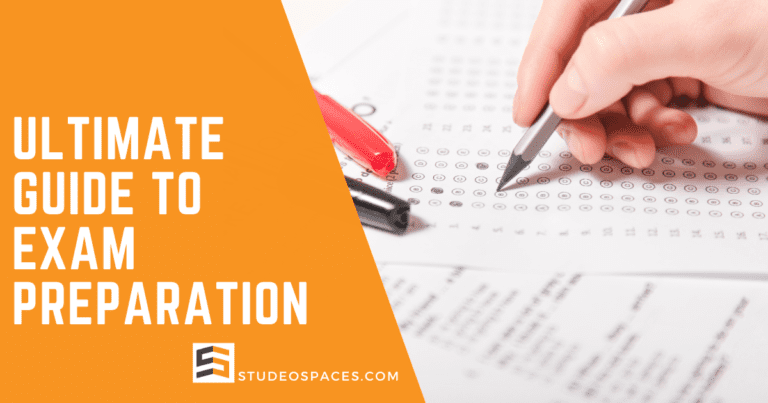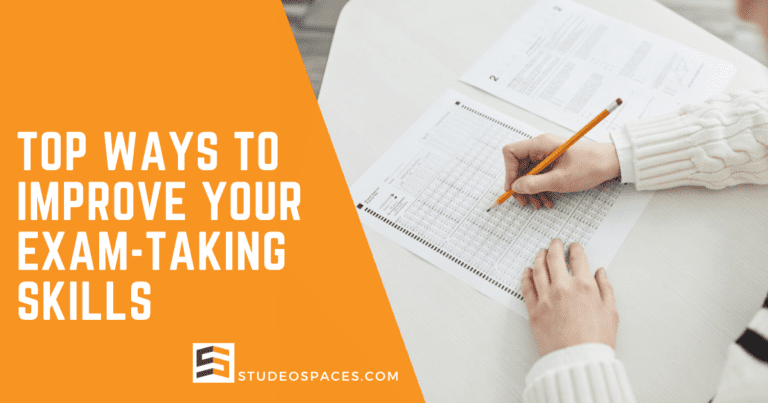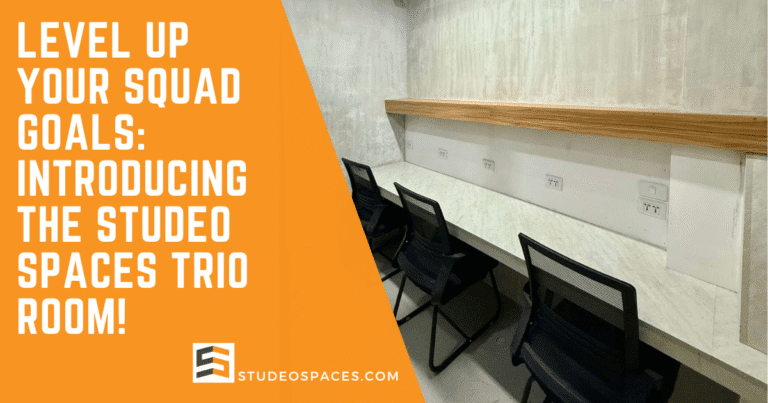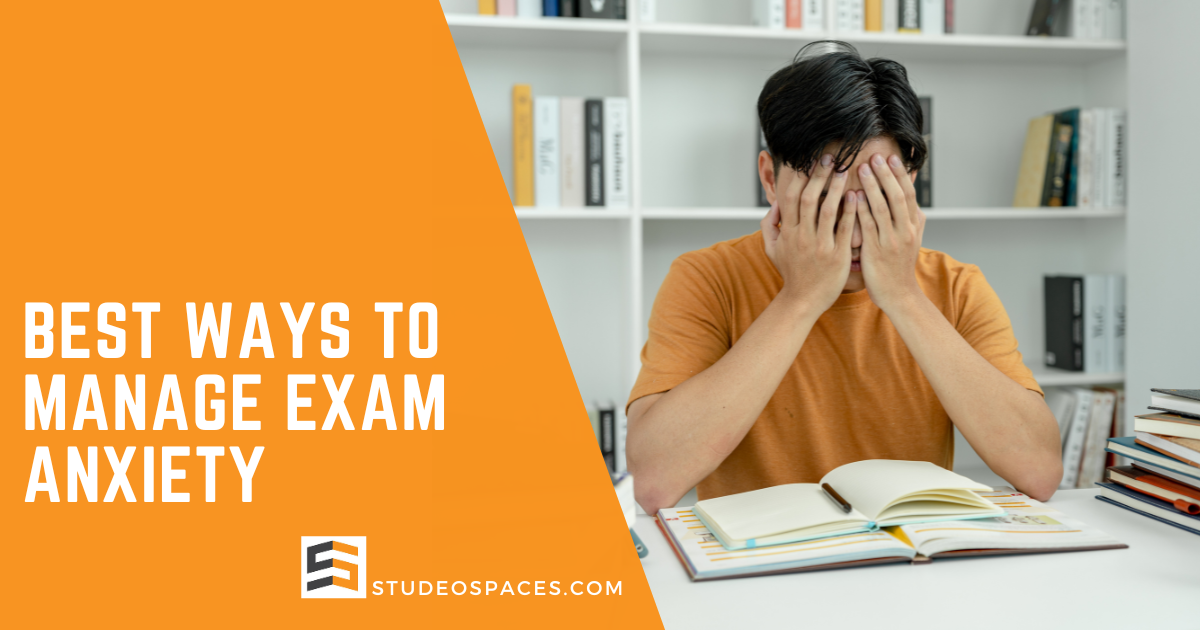
Managing exam anxiety is crucial for achieving academic success, and several effective strategies help alleviate the stress of preparing for significant tests. Are you feeling that familiar tightness in your chest as exams approach? Don’t worry; exam anxiety is a common experience. But here’s the good news: you can manage it effectively. This article will explore the best ways to manage exam anxiety, share practical tips, and introduce a fantastic resource to help you achieve the focus and productivity you need – the Studeo Spaces Study Hub.
Understanding Exam Anxiety
What is Exam Anxiety?
Exam anxiety is the feeling of stress or fear that one experiences before or during an exam. It can manifest in various ways, from mild nervousness to full-blown panic. Recognizing and acknowledging exam anxiety is the first step in managing it.
Causes of Exam Anxiety
Many factors can contribute to exam anxiety. Understanding these triggers can help you address them more effectively:
- Pressure to Perform: The need to achieve high grades can be overwhelming.
- Lack of Preparation: Insufficient study time or poor study habits can increase anxiety.
- Fear of Failure: The dread of not meeting expectations can cripple your confidence.
- Previous Negative Experiences: Past failures or stressful exam situations can haunt you.
Symptoms of Exam Anxiety
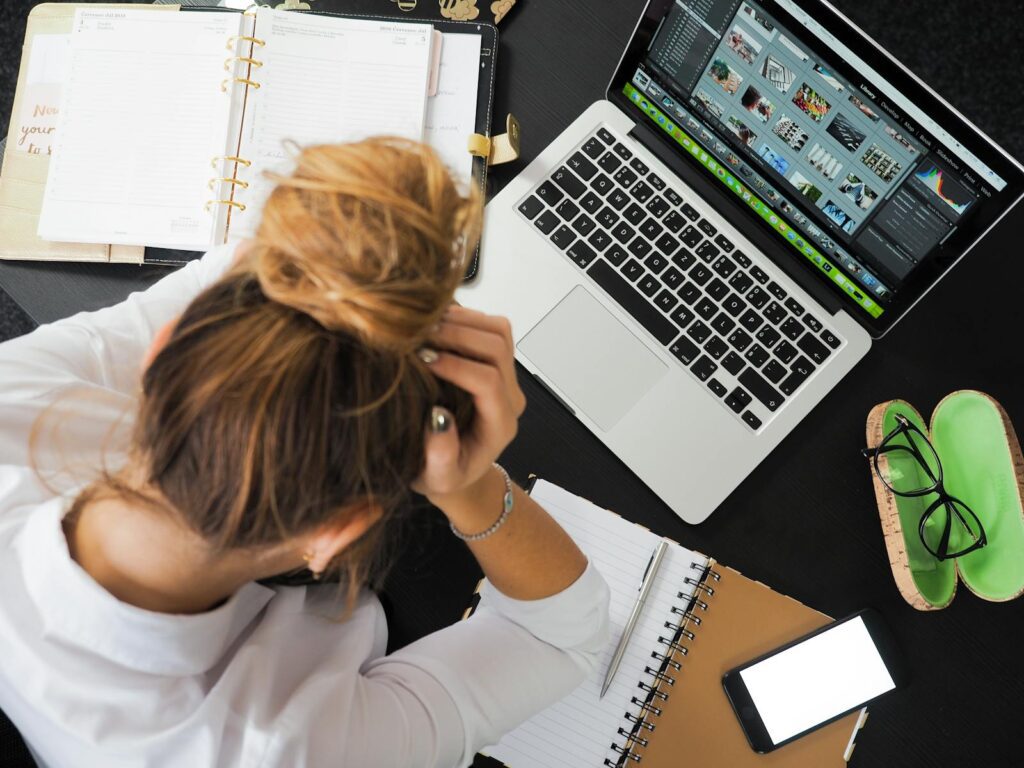
Physical Symptoms
Exam anxiety can manifest physically in the following ways:
- Increased heart rate
- Sweating
- Shaking or trembling
- Upset stomach or nausea
- Shortness of breath
Cognitive Symptoms
The mental symptoms of exam anxiety can include:
- Racing thoughts
- Difficulty concentrating
- Memory lapses
- Negative self-talk
Emotional Symptoms
Emotionally, you might feel:
- Overwhelmed
- Irritable
- Depressed
- Hyper-alert or on edge
Best Ways to Manage Exam Anxiety
Develop a Study Routine
Creating and sticking to a well-structured study routine is crucial. It will not only help you prepare better but also reduce stress significantly.
Steps to Develop a Study Routine:
- Set Clear Goals: Outline what you must study within a specific timeframe.
- Break it Down: Divide your study material into manageable chunks.
- Use a Timer: Implement techniques like the Pomodoro Technique for focused studying.
- Take Breaks: Short breaks between study sessions can rejuvenate your mind.
Practice Mindfulness and Relaxation Techniques
Mindfulness can help calm your mind and improve your focus.
Effective Techniques:
- Deep Breathing Exercises: Take deep breaths to calm your nerves.
- Meditation: Spend a few minutes meditating daily.
- Progressive Muscle Relaxation: Tighten and slowly release muscle groups to reduce tension.
Get Enough Sleep
Lack of sleep can exacerbate anxiety. Aim for seven to nine hours of sleep at night to keep your mind sharp and reduce stress.

Maintain a Balanced Diet
Eating a balanced diet can positively affect your mental state. Avoid caffeine and sugar, which can increase anxiety, and opt for foods rich in vitamins and minerals.
Stay Physically Active
Physical activity can be a great stress reliever. Whether it’s a brisk walk, yoga, or hitting the gym, exercise can help manage anxiety.
Utilize Support Systems
Don’t hesitate to seek support from friends, family, or a mental health professional. Talking about your worries can provide significant relief.
The Power of the Study Environment
Why Environment Matters
Your environment can significantly influence your concentration and stress levels. Working in a cluttered, noisy environment can increase anxiety, making it hard to focus.
Creating the Ideal Study Space
Tips for an Optimal Study Environment:
- Quiet Area: Find a quiet space free from distractions.
- Comfortable Seating: Ensure your chair and desk are ergonomically suitable.
- Good Lighting: A well-lit area can reduce eye strain and improve focus.
- Organized Workspace: Keep your study materials organized.
Introducing Studeo Spaces Study Hub
The Concept of Flow State
At Studeo Spaces Study Hub, they believe in fostering a state of hyper-productivity known as the “Flow State.” This is where you become fully immersed in your tasks, making studying effective and more enjoyable.
Studeo Spaces Study Hub: The Perfect Study Environment
The Studeo Spaces Study Hub is more than just a co-working space in Sampaloc. It is meticulously designed to provide students and professionals with the perfect atmosphere for studying.
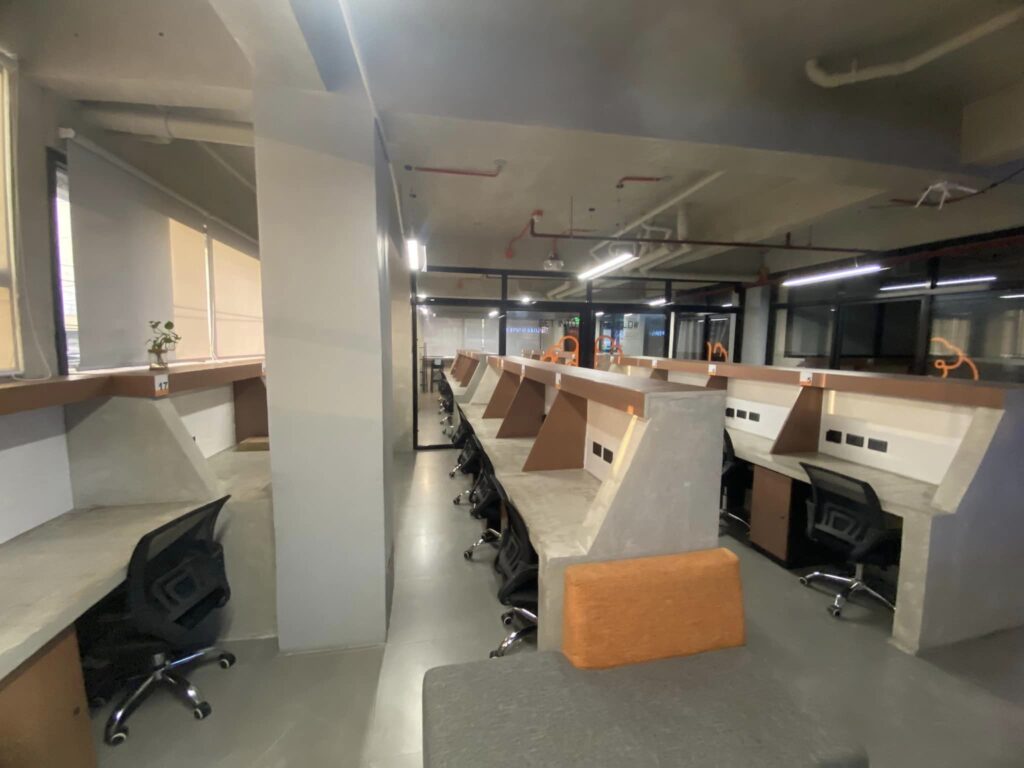
- Supportive Environment: Studeo Spaces provides a distraction-free environment that promotes peak performance.
- Open Every Day: Whether it’s a weekday, weekend, holiday, or stormy day, Studeo Spaces is always open from 8:00 AM to 12:00 MN (extendable to 6:00 AM at the Glassbox NightShift for just an additional P100.00).
- Flexible Access: Come in and go out as frequently as you need to throughout the day.
How Studeo Spaces Can Help You Excel
- Promotes Focus: The environment is designed to help you achieve and maintain focus.
- Reduces Anxiety: A supportive, consistent space helps in reducing exam-related stress.
- Boosts Productivity: The design and atmosphere foster a significant boost in productivity.
Location and Accessibility
Studeo Spaces Study Hub is conveniently located at the corner of Dapitan and Dela Fuente Streets, Sampaloc, Manila. You can easily find them using Google Maps, Waze, or Grab at their designated pins: Studeo Spaces.
Practical Tips for Exam Day
Before the Exam
- Get a Good Night’s Sleep: Prioritize rest the night before your exam.
- Eat a Balanced Breakfast: A good breakfast can help keep your energy levels up.
- Arrive Early: Get to the exam venue early to get settled and reduce anxiety.
During the Exam
- Read Instructions Carefully: Make sure you understand the instructions before starting.
- Pace Yourself: Manage your time effectively to avoid rushing through the exam.
- Stay Calm: If you feel anxious, take deep breaths to calm yourself.
After the Exam
- Don’t Dwell on Mistakes: Focus on what you did well rather than worrying about errors.
- Relax and Unwind: Treat yourself to some relaxation after the exam.
Summary Table: Tips to Manage Exam Anxiety
| Category | Tips |
|---|---|
| Study Routine | Set clear goals, break material into chunks, use a timer, take breaks |
| Mindfulness and Relaxation | Deep breathing, meditation, progressive muscle relaxation |
| Sleep | Aim for 7-9 hours nightly |
| Diet | Avoid caffeine and sugar, eat nutrient-rich foods |
| Physical Activity | Engage in regular exercise |
| Support Systems | Talk to friends, family, or mental health professionals |
| Study Environment | Find a quiet area, use comfortable seating, ensure good lighting, and keep the workspace organized |
| Exam Day | Sleep well, eat breakfast, arrive early, read instructions, pace yourself, stay calm, relax post-exam |
Conclusion
Managing exam anxiety might seem daunting, but with the right techniques and support, you can overcome it. Implementing a structured study routine, practicing mindfulness, maintaining a healthy lifestyle, and utilizing a supportive study environment can make a significant difference.
Remember, Studeo Spaces Study Hub provides an optimal atmosphere for achieving your goals. Their commitment to fostering a state of hyper-focus and productivity could be just what you need to excel in your exams and beyond. So, why not take advantage of such an incredible resource? Happy studying, and best of luck in your exams!
Please check out the Studeo Spaces Study Hub Official Website and follow the Studeo Spaces Study Hub Facebook Page and Studeo Spaces Study Hub TikTok Channel for announcements, news, and updates.
Other Exams Preparation Articles
Studeo Spaces Quick Links
- Book a Desk / Room
- Location
- Rates
- Features and Amenities
- Business Hours
- Private Rooms
- Latest News
Stay Connected
- Facebook: https://www.facebook.com/StudeoSpaces
- Tiktok: https://www.tiktok.com/@studeospaces
- Youtube: https://www.youtube.com/@StudeoSpaces
